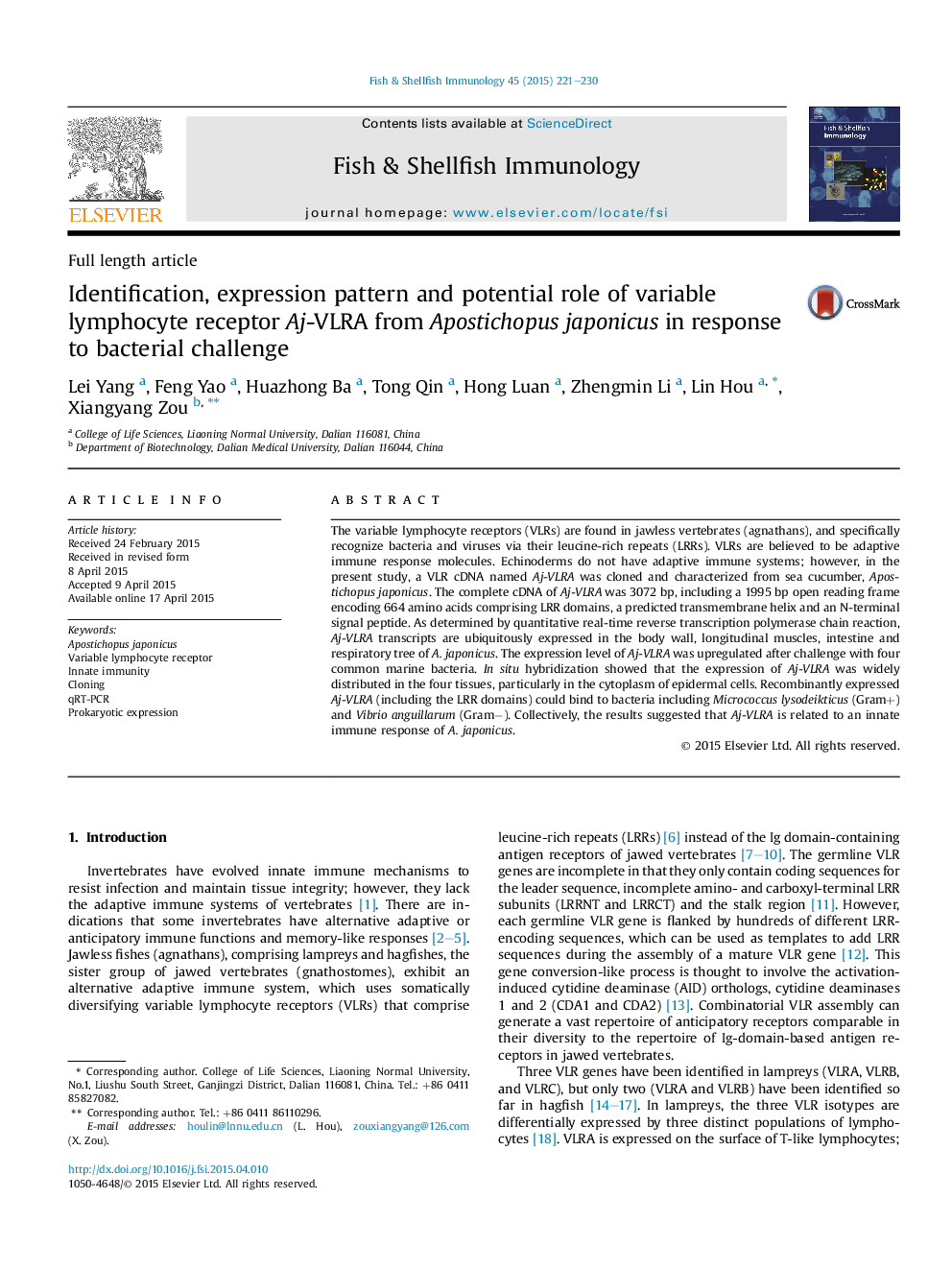| Article ID | Journal | Published Year | Pages | File Type |
|---|---|---|---|---|
| 10971802 | Fish & Shellfish Immunology | 2015 | 10 Pages |
Abstract
The variable lymphocyte receptors (VLRs) are found in jawless vertebrates (agnathans), and specifically recognize bacteria and viruses via their leucine-rich repeats (LRRs). VLRs are believed to be adaptive immune response molecules. Echinoderms do not have adaptive immune systems; however, in the present study, a VLR cDNA named Aj-VLRA was cloned and characterized from sea cucumber, Apostichopus japonicus. The complete cDNA of Aj-VLRA was 3072Â bp, including a 1995Â bp open reading frame encoding 664 amino acids comprising LRR domains, a predicted transmembrane helix and an N-terminal signal peptide. As determined by quantitative real-time reverse transcription polymerase chain reaction, Aj-VLRA transcripts are ubiquitously expressed in the body wall, longitudinal muscles, intestine and respiratory tree of A. japonicus. The expression level of Aj-VLRA was upregulated after challenge with four common marine bacteria. In situ hybridization showed that the expression of Aj-VLRA was widely distributed in the four tissues, particularly in the cytoplasm of epidermal cells. Recombinantly expressed Aj-VLRA (including the LRR domains) could bind to bacteria including Micrococcus lysodeikticus (Gram+) and Vibrio anguillarum (Gramâ). Collectively, the results suggested that Aj-VLRA is related to an innate immune response of A. japonicus.
Keywords
Related Topics
Life Sciences
Agricultural and Biological Sciences
Aquatic Science
Authors
Lei Yang, Feng Yao, Huazhong Ba, Tong Qin, Hong Luan, Zhengmin Li, Lin Hou, Xiangyang Zou,
